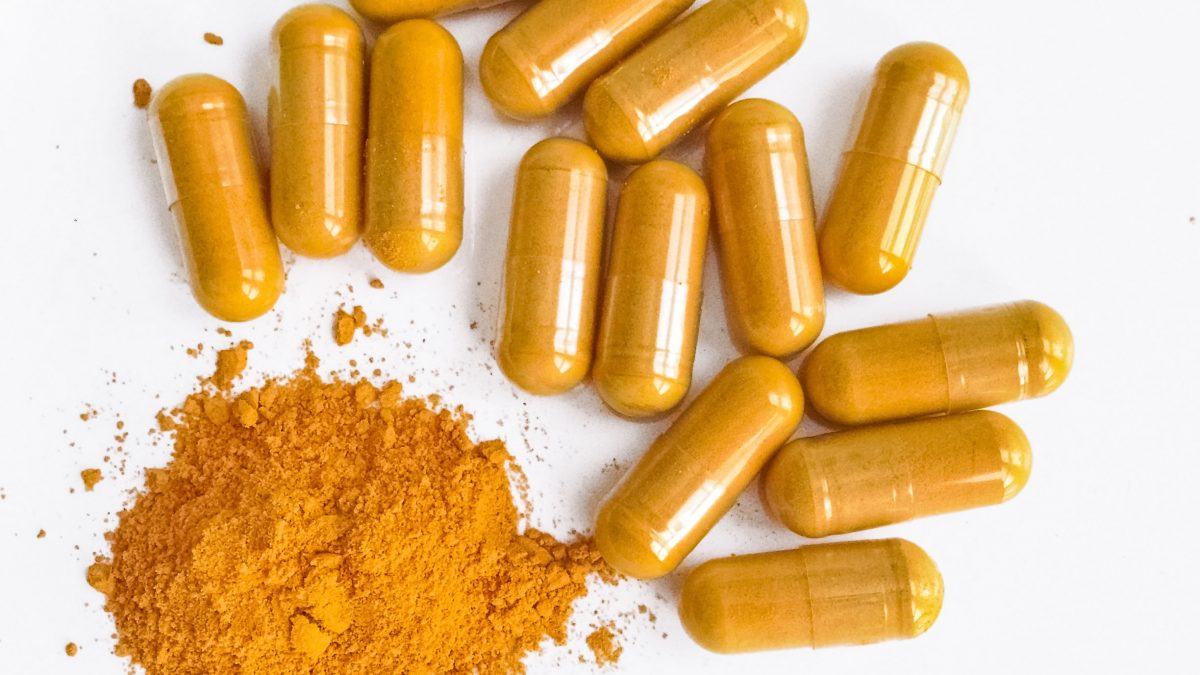Supplement manufacturers often fall into the same reductionist trap as the drug companies. Herbs are assumed to have only one main active ingredient, so, as the thinking goes, if you can isolate and purify it into a pill, you can boost its effects. Curcumin is described as the active ingredient in turmeric, but is it the active ingredient or just an active ingredient? It is just one of many different components—more than 300, in fact—of the whole food spice.
“Only limited studies have compared the potential of turmeric with curcumin.” Some, however, suggest turmeric, the whole food, may work even better—and not just against colon cancer cells. As I discuss in my video Turmeric or Curcumin: Plants vs. Pills, researchers at the Anderson Cancer Center in Texas pitted both curcumin and turmeric against seven different types of human cancer cells in vitro.
The study found that curcumin kicks tush against breast cancer cells, but turmeric, the whole food, kicks even more. In addition to breast cancer, the researchers found that turmeric was more potent compared to curcumin against pancreatic cancer, colon cancer, multiple myeloma, myelogenous leukemia, and colorectal cancer cells, “suggesting that components other than curcumin can also contribute to anti-cancer activities.”
Most clinical studies treating diseases in people have used curcumin supplements, as opposed to turmeric, but none has tried using turmeric components other than curcumin, even though curcumin-free turmeric exhibits anti-inflammatory and anticancer activities.
“Although curcumin is believed to account for most activities of turmeric, research over the past decade has indicated that curcumin-free turmeric”—that is, turmeric with the so-called active ingredient removed—“is as effective as or even more effective than curcumin-containing turmeric.” There are turmerones, for example, in turmeric, which may exhibit both anticancer activities, as well as anti-inflammatory activities, but these turmerones are processed out of curcumin supplements. So, I assumed this review would conclude by stating we should stop giving people curcumin supplements and instead just give them the whole food spice turmeric, but instead the researchers proposed that we make all sorts of different turmeric-derived supplements!
That’s quite a rebut to reductionism. For more on this flawed nutritional philosophy, see my video Reductionism and the Deficiency Mentality.
Similar videos in this vein include:
- Food Antioxidants and Cancer
- Treating Asthma with Plants vs. Supplements?
- Broccoli: Sprouts vs. Supplements
- Industry Response to Plants Not Pills
Interested in learning more about turmeric and cancer? See:
- Back to Our Roots: Curry and Cancer
- Carcinogenic Blocking Effects of Turmeric
- Turmeric Curcumin Reprogramming Cancer Cell Death
- Turmeric Curcumin and Colon Cancer
- Topical Application of Turmeric Curcumin for Cancer
- Turmeric Curcumin, MGUS, and Multiple Myeloma
And for more on turmeric and everything else:
- Turmeric Curcumin and Rheumatoid Arthritis
- Turmeric Curcumin and Osteoarthritis
- Boosting the Bioavailability of Curcumin
- Who Shouldn’t Consume Curcumin or Turmeric?
- Preventing Alzheimer’s with Turmeric
- Treating Alzheimer’s with Turmeric
- Turmeric Curcumin and Pancreatic Cancer
- Turmeric Curcumin vs. Exercise for Artery Function
- Heart of Gold: Turmeric vs. Exercise
- Speeding Recovery from Surgery with Turmeric
- Benefits of Turmeric for Arsenic Exposure
- Benefits of Turmeric Curcumin for Inflammatory Orbital Pseudotumor
- Turmeric Curcumin for Prediabetes
- Fighting Lupus with Turmeric: Good as Gold
In health,
Michael Greger, M.D.
PS: If you haven’t yet, you can subscribe to my free videos here and watch my live, year-in-review presentations:
- 2012: Uprooting the Leading Causes of Death
- 2013: More Than an Apple a Day
- 2014: From Table to Able: Combating Disabling Diseases with Food
- 2015: Food as Medicine: Preventing and Treating the Most Dreaded Diseases with Diet
- 2016: How Not To Die: The Role of Diet in Preventing, Arresting, and Reversing Our Top 15 Killers
